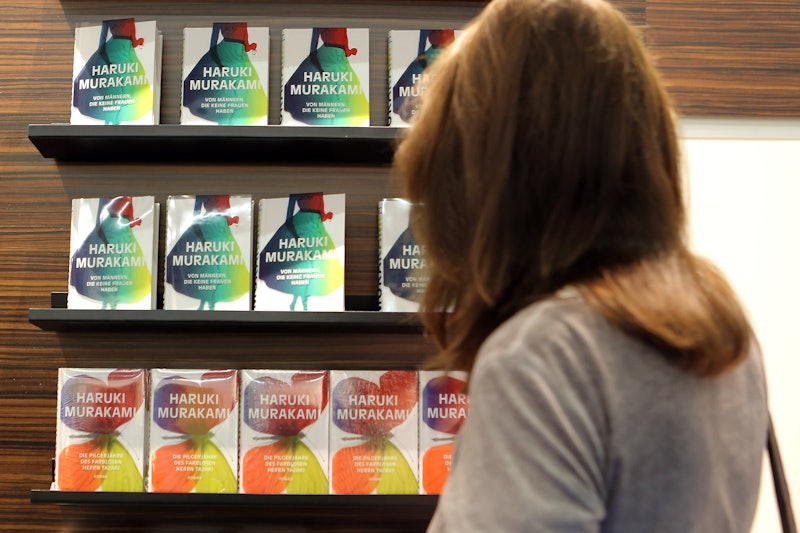Books
Was This An Invasion Of Haruki Murakami's Privacy?
It's always interesting to know what books authors read, but there are some limits on how far you can go to find out. Some are arguing that when a Japanese newspaper published record of Haruki Murakami's high school library record of borrowing habits, it went over the line. After all, we can debate all day long to what degree bestselling authors count as public figures and what that means, but they certainly weren't public figures in high school. The editors at the paper, however, see it differently.
The newspaper Kobe Shimbun published a photograph in November of a library card indicating that as a high school student, Haruki Murakami checked out books by French author Joseph Kessel from the school library at his alma mater Hyogo Prefectural Kobe High School. It's a move that left many, including the Japanese Library Association, upset.
“Disclosing the records of what books were read by a user, without the individual’s consent, violates the person’s privacy,” the association said in a report. Yasuhiro Nishigochi, the chairman of the Japanese Library Association's committee for intellectual freedom in libraries, added, “It is not right if people cannot use a library free from anxiety."
The newspaper, however, stood by its decision. “Mr. Murakami is a person whose work and how he developed his literature is a subject for scholarly study,” Hideaki Ono, the paper’s assistant managing editor, told the press. “He is known to have profound knowledge of British and American literature. But [the cards] showed he also explored French literature in his younger days.”
Whether or not a teenage interest in at least one French author counts as "exploring French literature" is, at this point, another question. More relevantly, though, is the question of whether publishing information about authors from their teenage years, long before they became famous, counts as fair game. After all, Haruki Murakami is currently 66 years old. Do the books he read half a century ago really say anything substantive about him as an author or literary figure?
I mean, I'm only in my mid-20s and I already don't think most of the books I read as a teenager are relevant to me anymore. Like, there was a while where I was really into Twilight . High school was a strange time for all of us.
On the other hand, it's also true that bestselling authors are part of the spotlight more and more in today's world, especially with the advent of social media. Although Murakami himself doesn't have much of a digital footprint, the way we view authors as a whole has shifted somewhat now that so many interact with fans online and cultivate public Internet personas. So the degree to which authors in general count as public figures is changing. And what that means, especially for authors who have never sought out that sort of spotlight, is still uncertain.
So is it relevant what Haruki Murakami or any other author happened to read as a high school student? Do we as the public have a right to know that information, even if the author in question didn't choose to discuss it?
The question of what is fair game for authors is changing, but I would argue that authors, just like everyone, should still have the right to decide what personal information they do and don't release to the public in all but the most unusual circumstances — Nicholas Sparks' alleged racism and homophobia being one example that comes to mind. Personal details, like the books someone read in high school don't really seem like fair game.
